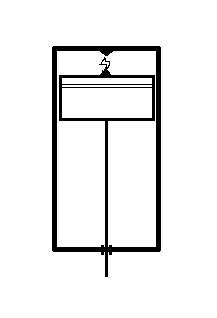I recently had an idea about the design of an internal combustion engine. Normally, the spark must be timed using some kind of circuit, but if there was a "spike" on the piston:
then would there be no need for a specialized ignition system?
Of course, there would have to be some kind of insulation between the spike and the casing, and between the spike and the piston.
